After an eventful 2022, the DMZ is taking a step back to appreciate all we’ve accomplished this year alongside our community and supporters — from onboarding startups to launching new programming and international expansion.
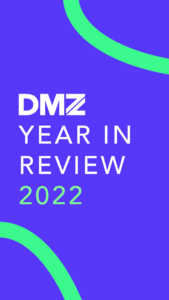
Scroll and reminisce with us!
Note: These are stats as of November 1, 2022.
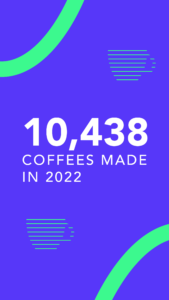
Our coffee machine is one of the most popular amenities at the DMZ! It’s clearly a community favourite, with an estimated 10,438 coffees made in 2022.
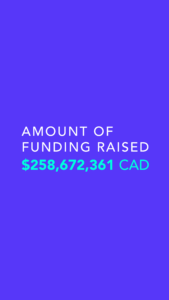
Up, up, up, and away — startup fundraising numbers surged to a whopping $258,672,261 this year!
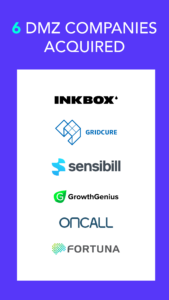
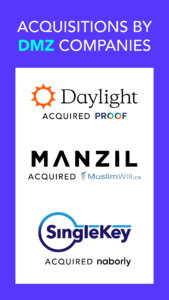
That’s right — six DMZ companies were acquired in 2022 (Sensibill, Gridcure, GrowthGenuis, InkBox, Fortuna, OnCall), and three acquisitions were made by DMZ companies: Singlekey acquired Naborly, Manzil acquired Muslim Will, and Daylight Automation (formerly known as FormHero) acquired Proof Data Technology.
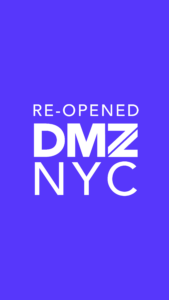
Start spreading the news! In October 2022, The DMZ re-opened in New York City — a tech ecosystem valued at $147 billion — to continue empowering the next generation of global startups.
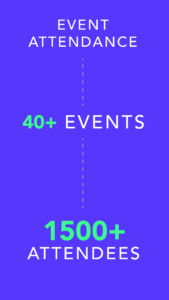
Let’s network! In 2022, the DMZ brought together over 1500 attendees in 40+ events in the tech ecosystem.
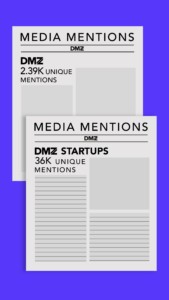
Our community had a ton of media traction over the past year. The DMZ had 2.39K+ features in the media, and our DMZ startups had an enormous media presence with 36k+ highlights.
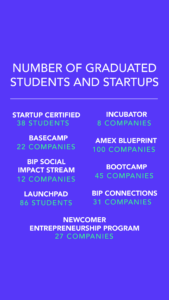
Startups come and go at the DMZ, but they always leave an imprint in our community. This year, 357 startups graduated from DMZ programs, including Startup Certified (38 students), Basecamp (22 companies), NEP (27 companies), Launchpad (86 students), Incubator (8 companies), AMEX Blueprint (100 companies), Pre-Incubator (45 companies) and BIP Connections (31 companies).
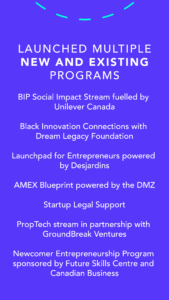
The DMZ stays busy! This year, we ran programming for multiple existing programs: BIP Social Impact Stream fuelled by Unilever Canada, Black Innovation Connections with Dream Legacy Foundation, Launchpad for Entrepreneurs powered by Desjardins and AMEX Blueprint powered by the DMZ.
In addition, we housed the launch of the Newcomer Entrepreneurship Program (NEP) — a virtual ideation program sponsored by the Future Skills Centre and media sponsored by Canadian Business that helps Canadian newcomers develop startup fundamentals. We also partnered with Toronto-based venture capital firm GroundBreak Ventures to launch our PropTech stream as part of our incubator program to help high-potential PropTech startups transform the real estate landscape.
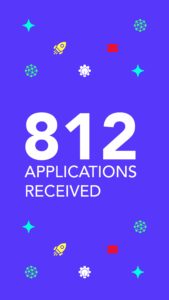
There’s a reason we’re known as a world-leading tech incubator. This year we received over 812 global applications. We’ve still got it.



